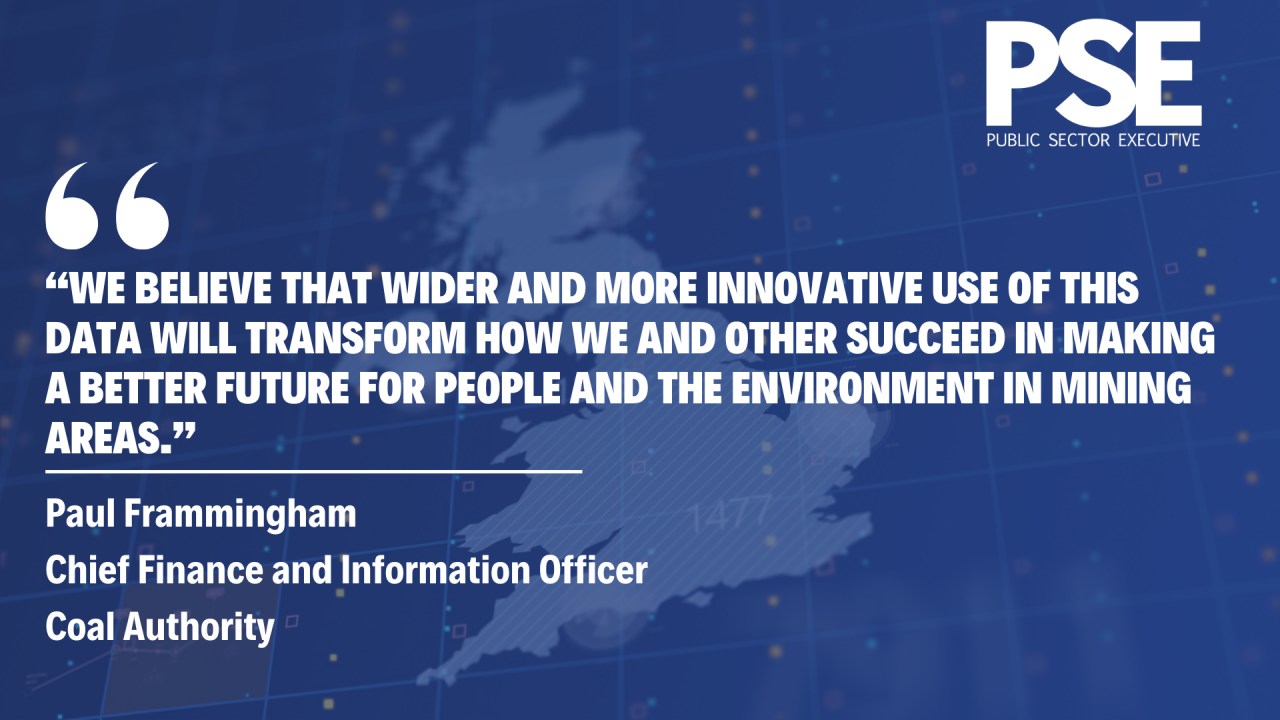Public sector organisations are now able to access data from the coal authority, for free, as part of the organisation’s data and information plan for 2024 to 2027.
Authoritative data that is accessible from the Coal Authority can be used to identify hazards, respond to emergencies, and design systems that will stop water from mines polluting drinker, river, and sea water. This comes as mine workings covered by the authority lie beneath around 25% of Great British properties.
As part of the information plan, the Coal Authority has committed to developing and updating the data and information, whilst also providing access to the data for free, for any projects that are funded by the taxpayer.

Chief Finance and Information Officer at the Coal Authority, Paul Frammingham, said:
“We hold a unique and extensive collection of data and information that details Great Britain’s mining legacy and its impacts on the environment. We believe that wider and more innovative use of this data will transform how we and other succeed in making a better future for people and the environment in mining areas.
“Our new plan will explain how we will do this through investing in our data and information over the next three years and beyond.”
Holding geospatial data that is of national importance, the authority will also work alongside the new Geospatial Commission to identify ways that the information can be used alongside other government partners to find solutions to some of the biggest challenges facing the country at the moment. These issues cover everything from climate change and energy security, to economic growth and national security.
Gerry Wildman, the Coal Authority’s Principal Data and Information Manager, also commented:
“We recognise the important role of the public sector in funding and delivering projects that support infrastructure and services, as well as projects that protect our environment and contribute to the government’s net zero targets.
“We know our data can plan an important role in supporting these activities and hope to encourage its use by removing commercial data licensing fees for public sector organisations from April 2024.”
Image credit: iStock



















